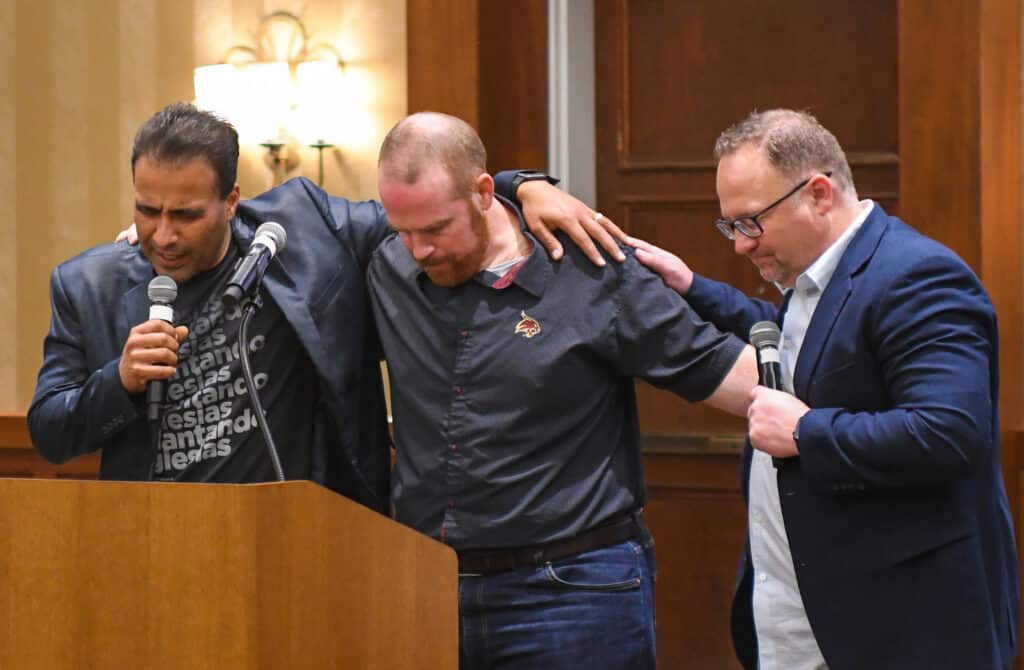Religious liberty: There is no more important issue facing voters in this presidential election. Considering the options, that statement is significant. Sanctity of life is the most important moral issue of the past half-century. The foundational institution of civil society, marriage, is at most a step and a half from being completely devoid of meaning. Racial prejudice has already divided and may yet end up felling the nation. The free market is mocked by the crowds and shackled by the government to which it brought unprecedented prosperity and power.
What makes religious liberty the most important among so many profoundly significant issues? All of the others find their only real resolution in religious conviction. There are non-religious arguments to be made regarding all of the topics mentioned above. But those arguments invariably either build on a deep-seated religious conviction, or at least reveal one. When the individual’s freedom to believe or to practice his faith is undermined, then the ability to influence every morally significant issue in the culture is undermined.
“But surely there is no real threat to religious freedom in America.” Surely there is. In fact, when authorities declare commencement addresses about Jesus offensive, crosses at memorials inappropriate, or cheerleading placards with Scripture references illicit, religious liberty is threatened. When hate-crime legislation protects some groups but not others, religious liberty is endangered. When religious organizations are forced to pay directly for contraceptives and abortifacients in direct violation of their religious conviction, religious liberty is violated.
The first words in the first amendment of the Bill of Rights (the first amendments to the U.S. Constitution) are: “Congress shall make no law respecting an establishment of religion, or prohibiting the free exercise thereof.” Before freedom of speech, before freedom of the press, and before the right to assemble there is freedom of religion.
In the face of criticism that it is impinging on the freedom of religion, the current administration including the president himself and the secretary of state have fallen back on the nation’s respect for the freedom to worship. But freedom to worship “as one sees fit” is only a meager shard of genuine religious liberty. The words of the first amendment protect not simply the contained worship of a congregation within a building’s walls one day of the week, but the free exercise of religion. Since religion sincerely practiced affects the whole of a person’s life, the free exercise of religion extends to every part of that person’s life: at church, home, work, school, the marketplace, and the voting booth.
Religion is the ultimate expression of value, and faith the ultimate expression of commitment. In a land teetering on the brink of what almost half the nation sees as a bright new horizon, the only hope of protecting and even fostering values as fundamental and diverse as life and family, or equality and opportunity, is for persons with religious conviction to exercise their faith in practice—privately, publicly, socially, and politically.
Unfortunately, even a disconcerting number of believers are beginning to claim that a persecuted church might be a stronger church—that an end of religious liberty might not be a bad thing. That line of thinking needs correction. It is true that suffering can bring purity. But it is false to think that only suffering can bring purity. Similarly, it is true that God has no problem overcoming any kind of opposition—even when it comes from a powerful and tyrannical state. But thinking that an oppressive state is acceptable because God can overcome it through the faithfulness of his suffering people is tantamount to thinking that sin is acceptable because God can overcome it through the suffering of his Son. Paul told the Romans that line of thinking is wrong.
No government should ever violate the free consciences of its citizens. It may be too late to hope this one never will. But it is not too late for this state’s citizens to use the power still in their possession to fill the government with leaders who will ensure not just that Sunday worship is unrestrained, but that Sunday through Saturday the free exercise of religion is unrestrained.
—Barry Creamer is vice president of academic affairs and professor of humanities at Criswell College in Dallas.














